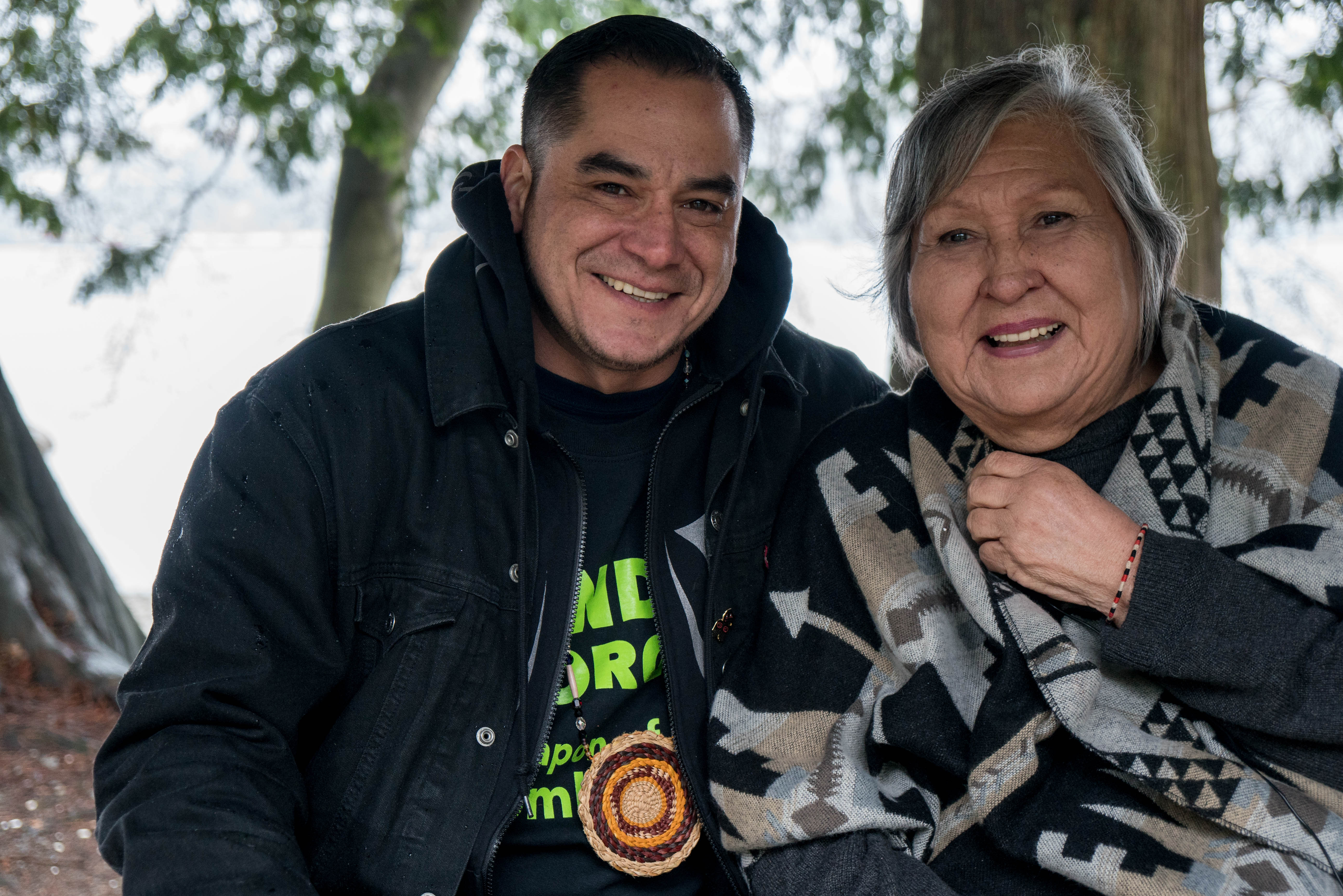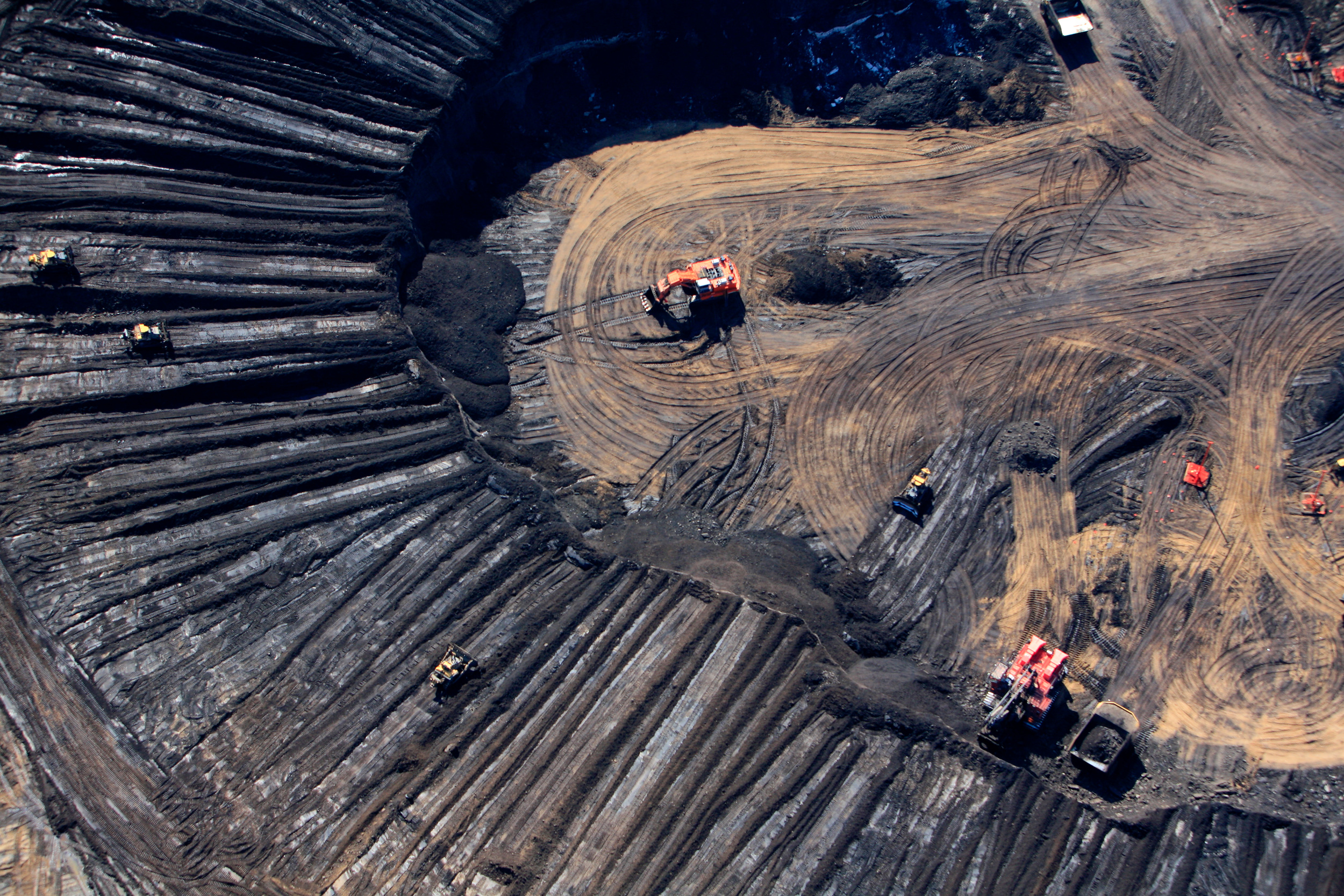
Will George and Ta’ah (Amy George), Indigenous leaders.
This March, Greenpeace will be part of an epic movement led by Indigenous Peoples to protect the iconic Pacific coast from a US oil company’s massive oil pipeline.
Thousands of people are gathering to protect water and stop climate change tomorrow by confronting one of the next big oil threats in North America. On the iconic shores of the Pacific Ocean in Vancouver, Canada, the Texas-based oil and gas company Kinder Morgan is trying to build a new pipeline that will cut across Indigenous land, threatening the land and water, and contributing to dangerous climate change in the process.
What you need to know about Canada’s tar sands and how they will impact us all
Canada’s tar sands are one of the planet’s biggest carbon bombs. The new pipeline will transport millions of barrels of some of the world’s dirtiest oil — from Alberta, Canada to be loaded onto tanker ships.
Pipelines like Kinder Morgan will facilitate the expansion of Canada’s tar sands. Burning the oil they contain will make it even harder for us to avoid the worst impacts of climate change. We cannot let this pipeline help worsen climate change, which will fuel super-storms, droughts and rising sea levels that could harm people all over the world.

Aerial view of Syncrude Aurora tar sands mine in Alberta, Canada.
The pipeline also jeopardizes the health of the communities living along its route by risking spills that could poison drinking water and be impossible to fully clean up. In addition, by creating a super-tanker highway down the Pacific coast, Kinder Morgan could push an endangered orca whale population to extinction. The population of endangered orcas has dwindled down to 76 individuals.
In February, Kinder Morgan received permission to start the construction. Fewer than half the Indigenous Nations whose territories lie along the route of the pipeline have given their consent.
This is our chance to stand with Indigenous Peoples against this toxic pipeline
The Pacific Ocean’s ancient waters have been a source of livelihoods for Indigenous Peoples on Canada’s coast for generations. Many of these communities have been trying to stop this pipeline for years. They’ve tried talking to governments, they’ve tried in the courts, and now a courageous and united Indigenous-led resistance will take the fight to the land to stop it from being built.
On Saturday, Indigenous leaders will come together with thousands of allies to resist this pipeline and are calling on all of us to help them succeed. Leading this mobilization are Indigenous Coast Salish, spiritual leaders, and youth — including Elder Ta’ah and member, Will George.
“Our members, spiritual leaders, and youth will be on the land practising our culture and spirit as we have for time immemorial. We will use our presence to stop Kinder Morgan,” they have said.

Material waits in a pipe yard for Enbridge’s Line 3 expansion under construction near Hardisty, Alberta.
This mobilization could be a major turning point in the resistance against Kinder Morgan. Indigenous leaders will build a “watch house,” a structure entrenched in the tradition of the Coast Salish Peoples, who in the past would use watch houses to monitor their enemies and prepare to defend themselves in case of attack. Now, with Kinder Morgan threatening to move forward with its destructive construction plans, Indigenous leaders are preparing to protect their lands and waters once again.
The building will take place over two days. Indigenous Peoples will join together with people coming from the U.S. and other parts of Canada. Together, the resistance against this pipeline is becoming bigger, more courageous, unstoppable.
Will you join us?
The iconic Pacific Ocean, the coastal communities who depend on it, and the diverse wildlife that call it home should not be sacrificed so a Texan fossil fuel company can get rich.
Indigenous cultural and spiritual leaders have asked us to join them to take a stand against this pipeline. Greenpeace will be part of this movement, lending our support to these leaders to protect water, nature and each other. We’re calling on people all around the world to rise up with one voice and protect all that is at risk, will you join in?
Jesse Firempong is a Communications Officer for Greenpeace Canada
